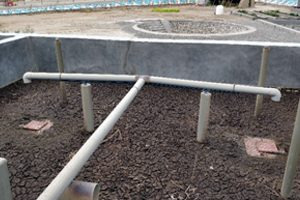“Commitment” as a success factor for fecal sludge management
Leh, a high-altitude cold desert in India, is a popular tourist destination hosting around 250,000 visitors annually. At present, the poorly designed septic tanks and soak pits installed by households, hotels, and guesthouses to contain fecal sludge are posing a serious threat to groundwater contamination. To cater to the demand for fecal sludge management (FSM), the Municipal Committee of Leh (MCL) partnered with a private company called Blue Water Company (BWC) and a technical nongovernment organization named BORDA in 2017 to provide an end-to-end FSM service, including pit emptying and operation of a sludge treatment plant.

